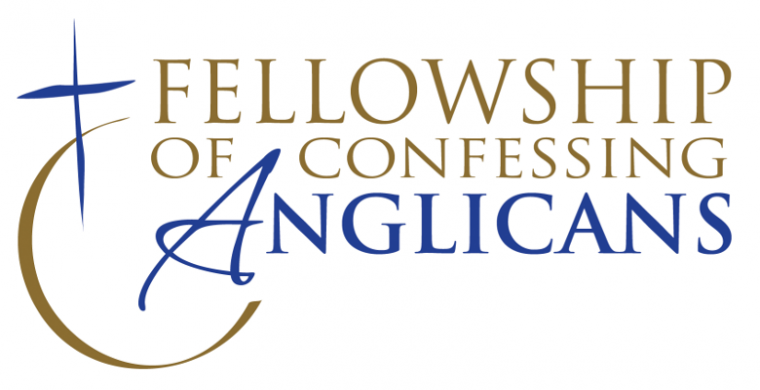Trajectory of the C of E: suggestions for confessing Anglicans
By Andrew Symes
www.anglicanmainstream.com
December 2, 2014
A group of evangelical clergy are protesting about an article written in their Diocesan newspaper by a member of the senior staff team that promotes the acceptance of same sex relationships. Dr. Martyn Percy, Dean of Christ Church, Oxford, writes what appears to be a brief review of two books on the subject. In one paragraph he praises More Perfect Union by Alan Wilson, then he contemptuously dismisses "Is God anti-gay?" by Sam Allberry, in four sentences. (Sam's book is a clear and concise survey of the biblical texts and the real live issues for Christians with same sex attraction.) Percy concludes with his own sermon arguing for complete change in the biblical doctrine of Christian marriage.
The Door, copies of which are distributed to every parish church and throughout the communities of the Diocese, appears to be widely read and much appreciated. (The Dean's review can be found on page 5 of the December issue.) It contains news of church involvement in various aspects of mission from around the large area, interviews and reports. It would be better if it stayed that way: upbeat, encouraging, uncontroversial -- not for the promotion of contentious views by academics. So once again we have to flag up this tendency, no doubt occurring in many other Dioceses as well, of church leaders using their position and official institutions to promote heresy, causing confusion, anger and disunity.
In another Diocese, which I can't name at the moment, a number of clergy in civil partnerships have been appointed to senior posts, to the extent that even some moderates feel that this kind of 'affirmative action' is getting out of hand. Of course all these clergy have given assurances that their relationships are non-sexual, but they make no secret of their opposition to the C of E's current teaching and their support for the 'inclusion' ethic. For some evangelicals, the appointment of one of these revisionists to be in charge of the training of all curates in the Diocese has proved the last straw. Or has it? This situation is not unique. As revisionists continue their takeover of Diocesan administrations, the few conservatives left in senior positions tend to keep their heads down and work for 'peace', seeing protesting biblically faithful clergy as equally a problem to be managed as the campaigning inclusionists.
Meanwhile, Western culture with its secular humanist project to redefine humanity as free to self-create without God (and re-create God according to self), continues to exert its pressure. As numerous articles on this website have highlighted, schools are in the front line, now having to teach 'British values of openness and tolerance' ie taboo-free and gender-neutral sex education, as well as multifaith religious education. Senior political figures regularly call on the Church to accept same sex marriage. And once again, the Bill to ban all forms of counselling for people seeking release from or reduction of unwanted same sex attraction (ideologically and erroneously called "gay conversion therapy" in official documents) is being brought before Parliament for its second reading.
How is the Church responding? The official policy is to stand firm, to reiterate that the Church will not change its teaching on marriage -- and there has recently been encouraging push-back from the C of E education department on the tendency of school inspectors OFSTED to confuse educational quality and politically correct ideology. But as we have seen, this is increasingly undermined as more and more senior Diocesan posts are filled by people openly arguing for change in the Church's official teaching, and those who defend the traditional, biblical line are marginalized.
Among evangelicals who agree on what the Bible says about sex and marriage, there is disagreement on analysis and strategy: how serious are the problems with church and culture, and what should be done about it? While all agree that evangelism and church planting are vital, there is disagreement about discipleship in a post-Christian society: should we train congregations to understand and name the anti-Christian forces in society so as to better live in Christ and articulate our faith? Or is this actually counter productive: does public Christian opposition to, for example, LGBT-driven policies such as gay marriage, liberal sex education and the closing down of free speech make the church seem "nasty" and inhibit mission?
And then, should we stay in the C of E, seeking to reform it from within? At what point does this become impossible when Diocesan leadership and General Synod is increasingly dominated by those committed to the opposite vision of reform? Is there an alternative? Without clear, united plans for financial ring-fencing, alternative oversight and ultimately, a new ecclesial jurisdiction based on confessional understanding of the faith, could we be drifting towards a situation like Anglicanism in North America -- but without the equivalent of ACNA to harbour the faithful?
Here is a suggestion of three action points for the preservation of confessing Anglicanism in England:
Disestablishment. The tying of Church to State is being increasingly being questioned by liberals and conservatives alike. Loosening of ties could force a reassertion of Christian identity centred on Christ, rather than cultural Englishness, as foundational to the Church.
Disengagement. A negotiated and peaceful break up of the C of E into a federation of independent groups might work, but confessing Anglicans need to disengage and develop new structures before formal agreements on buildings, pensions etc. are reached.
Discipleship. The focus has to be on quality rather than quantity: people demonstrating counter cultural witness, repentance, faith, the way of the cross in the power of the Spirit as a challenge and rebuke to the idols and the powers of our age, and a gracious call to the confused and the enslaved people outside the Kingdom whom God loves.
END














